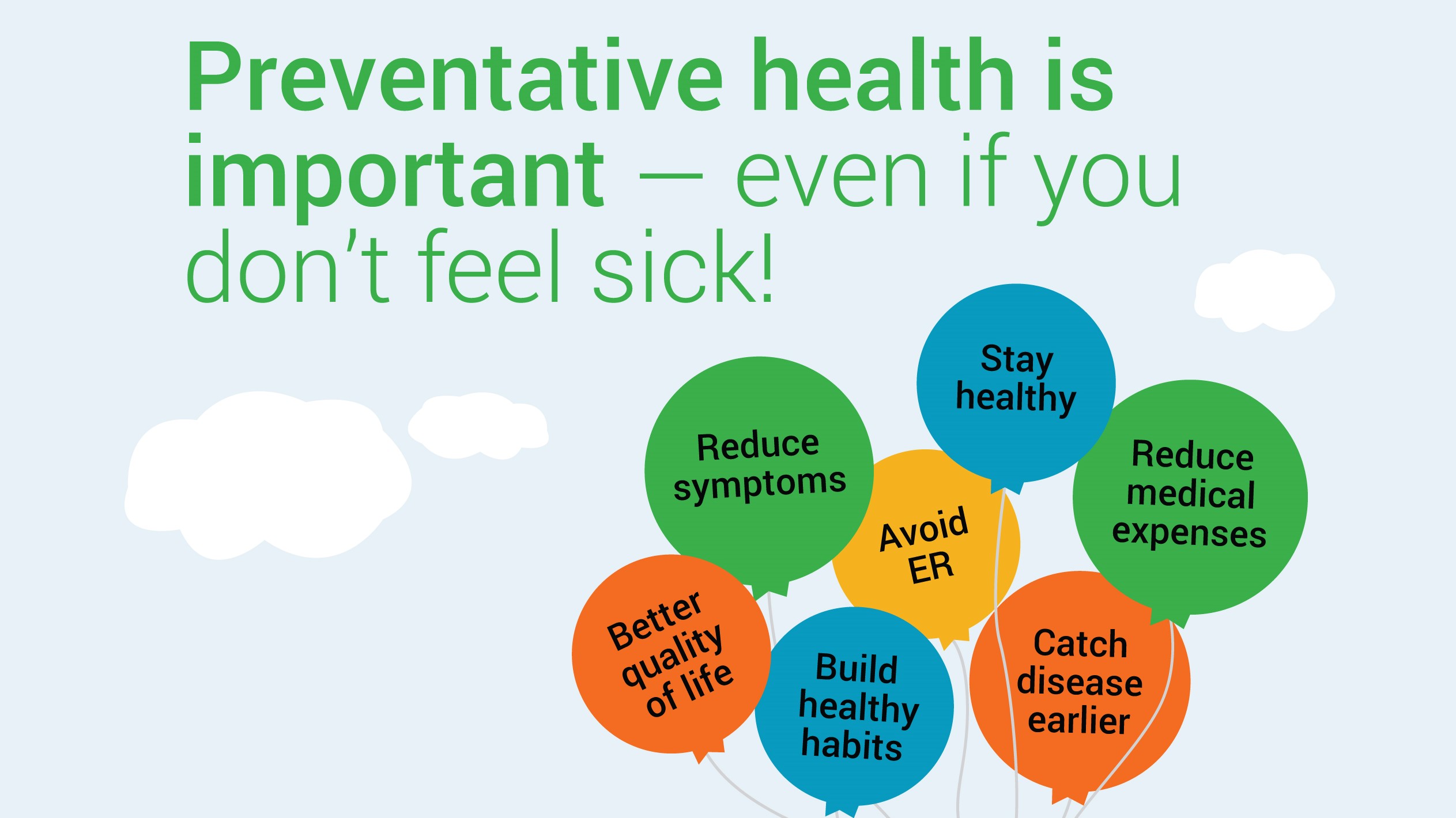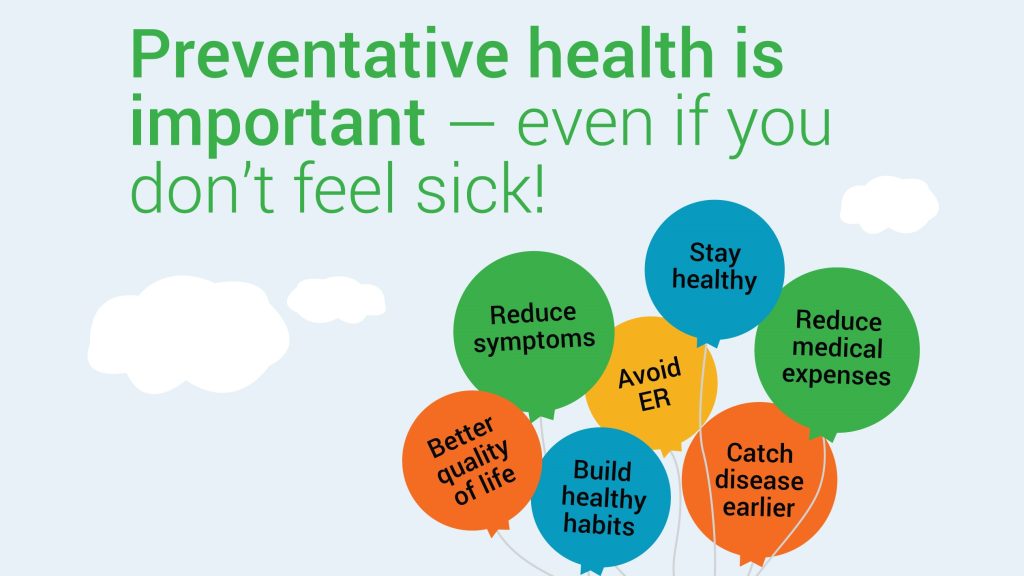The Importance of Preventive Health in Modern Living

In today’s fast-paced world, it’s easy to get caught up in the hustle and bustle of daily life and forget to prioritize one of the most essential aspects of our well-being: preventive health. According to the World Health Organization (WHO), premature death and disability are often preventable through simple measures and lifestyle changes. In this article, we’ll delve into the importance of preventive health, explore the risks associated with neglecting it, and provide actionable steps to help you prioritize your health and well-being.
What is Preventive Health?
Preventive health refers to the medical care and interventions aimed at preventing disease and disability, rather than treating them after they’ve occurred. This includes regular check-ups, screenings, and tests to detect health problems early, when they’re more easily treatable. Preventive health also encompasses lifestyle changes, such as maintaining a balanced diet, engaging in regular physical activity, and managing stress.
The Risks of Neglecting Preventive Health
Neglecting preventive health can lead to a range of serious consequences, including:
- Chronic Disease: Conditions like diabetes, heart disease, and certain types of cancer are often preventable or can be managed through early detection and treatment.
- Infections and Illnesses: Diseases like influenza, pneumonia, and tuberculosis can be prevented or mitigated through vaccination and good hygiene practices.
- Accidents and Injuries: Falls, car accidents, and other types of trauma can be prevented or minimized through measures like regular exercise, proper nutrition, and safe sleep habits.
- Mental Health: Chronic stress, anxiety, and depression can be prevented or managed through stress-reducing techniques, social support networks, and professional help when needed.
- Financial Burden: Medical expenses can be significant, and preventable health problems can put a heavy financial burden on individuals and families.
The Benefits of Prioritizing Preventive Health
On the other hand, prioritizing preventive health offers a wide range of benefits, including:
- Improved Health Outcomes: Preventive health measures can help prevent or manage chronic diseases, reduce the risk of infections and illnesses, and promote overall well-being.
- Increased Energy and Productivity: Regular exercise, balanced eating, and adequate sleep can boost energy levels, improve concentration, and enhance productivity.
- Better Mental Health: Stress-reducing techniques, social support networks, and professional help can foster mental well-being, resilience, and happiness.
- Financial Savings: Preventive health measures can help avoid costly medical expenses, reduce the need for hospitalizations, and minimize the risk of long-term care needs.
- Increased Quality of Life: Prioritizing preventive health can enable individuals to engage in activities they enjoy, pursue their passions, and live a fulfilling life.

Actionable Steps to Prioritize Preventive Health
So, how can you start prioritizing preventive health in your life? Here are some actionable steps to get you started:
- Schedule Regular Check-Ups: Visit your healthcare provider for regular check-ups, screenings, and tests to detect health problems early.
- Maintain a Balanced Diet: Focus on whole, unprocessed foods like fruits, vegetables, whole grains, lean proteins, and healthy fats.
- Stay Hydrated: Drink plenty of water throughout the day, aiming for at least eight glasses.
- Exercise Regularly: Aim for at least 150 minutes of moderate-intensity exercise or 75 minutes of vigorous-intensity exercise per week.
- Get Enough Sleep: Aim for 7-9 hours of sleep per night and prioritize restful relaxation techniques like meditation or deep breathing.
- Manage Stress: Engage in stress-reducing activities like yoga, tai chi, or walking.
- Practice Good Hygiene: Wash your hands frequently, avoid close contact with people who are sick, and avoid sharing personal items.
- Schedule Vaccinations: Stay up-to-date on recommended vaccinations, such as flu, pneumonia, and HPV shots.
- Limit Screen Time: Set boundaries around screen time and prioritize outdoor activities, social connections, and other hobbies.
- Seek Support: Lean on friends, family, and healthcare professionals for emotional support and guidance.
Empowering Others to Prioritize Preventive Health
We urge you to share this article with your loved ones, friends, and colleagues who may be neglecting their preventive health. Encourage them to prioritize their well-being by:
- Sharing Personal Stories: Share your own experiences with preventive health, including successes and setbacks.
- Offering Support: Volunteer to help others schedule appointments, attend check-ups, or pursue healthy habits.
- Raising Awareness: Share resources and information about preventive health, such as articles, videos, or infographics.
- Creating a Support Network: Organize group events or activities that promote preventive health, such as fitness classes or stress-reducing workshops.
Conclusion
Preventive health is a critical aspect of modern living, and neglecting it can have severe consequences. By prioritizing preventive health, we can improve our health outcomes, increase energy and productivity, and enhance our overall well-being. We encourage you to take the first step today by scheduling a check-up, maintaining a balanced diet, and exercising regularly. Share this article with your network and empower others to prioritize preventive health.
Share This Article to Spread the Word!


